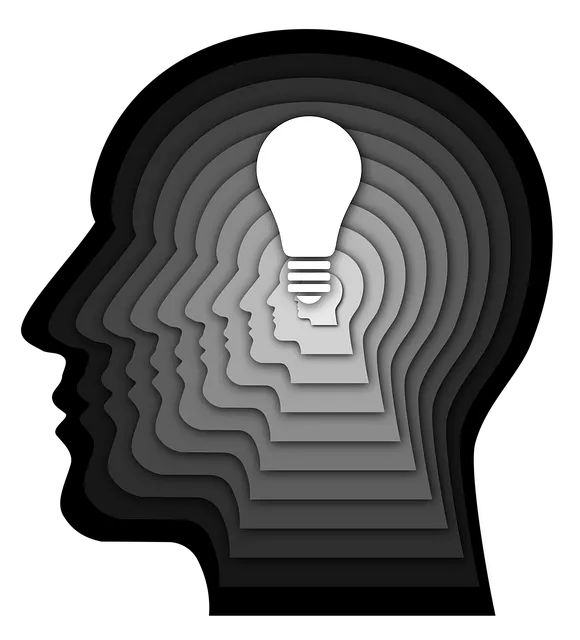Littleton Kaiser Permanente is revolutionizing mental health care through enhanced diagnostic accuracy and patient-centered approaches. They combat misdiagnosis with advanced AI assessment platforms, comprehensive staff training on diverse conditions and cultural sensitivities, and digital education programs. Their patient-focused strategy empowers individuals to actively manage their emotional well-being, combining compassion cultivation with evidence-based techniques for improved outcomes. Continuous improvement through research and feedback drives their commitment to providing effective, compassionate mental health care tailored to evolving best practices.
At Littleton Kaiser Permanente, concerns about mental illness diagnosis accuracy have sparked efforts to revolutionize care. This article delves into the current challenges faced in diagnosing mental health conditions at the facility, exploring innovative tools and techniques designed to enhance diagnostic precision. We examine comprehensive training programs for healthcare professionals, patient-centered approaches that empower individuals, and continuous improvement strategies based on research and adaptation. By focusing on these efforts at Littleton Kaiser Permanente, we aim to illuminate best practices advancing mental health diagnosis accuracy.
- Understanding the Current State: Challenges in Mental Health Diagnosis at Littleton Kaiser Permanente
- Innovative Tools and Techniques to Enhance Accuracy
- Training and Education Programs for Healthcare Professionals
- Patient-Centered Approaches: Involving Individuals in Their Care
- Continuous Improvement: Monitoring, Research, and Adapting Practices
Understanding the Current State: Challenges in Mental Health Diagnosis at Littleton Kaiser Permanente

At Littleton Kaiser Permanente, understanding the current state of mental health diagnosis is a complex task due to several inherent challenges. The vast spectrum of symptoms and behaviors associated with mental illnesses often overlaps, making it difficult for healthcare professionals to discern specific disorders accurately on their first encounter. This ambiguity can lead to misdiagnosis or delayed treatment, impacting patients’ overall well-being. For instance, individuals presenting with anxiety symptoms might be categorized as having depression, requiring different therapeutic approaches.
To address these challenges, Littleton Kaiser Permanente has been actively implementing various strategies. These include enhancing clinical training in mental health assessment techniques, encouraging ongoing professional development for healthcare staff, and integrating innovative tools for more precise diagnoses. They also offer comprehensive resources like Crisis Intervention Guidance programs and workshops on Emotional Well-being Promotion Techniques to better equip both patients and providers in managing mental health concerns effectively.
Innovative Tools and Techniques to Enhance Accuracy

At Littleton Kaiser Permanente mental health, innovative tools and techniques are being embraced to enhance diagnosis accuracy. These include advanced assessment platforms that leverage artificial intelligence (AI) to analyze patient data more effectively than traditional methods. By processing vast amounts of information, including medical history, symptoms, and even genetic predispositions, AI algorithms can identify subtle patterns indicative of specific mental health conditions. This not only improves diagnostic precision but also allows for personalized treatment plans tailored to each individual’s unique needs.
Additionally, the integration of digital mental health education programs designed to foster positive thinking and crisis intervention guidance has been instrumental in this effort. These interactive platforms equip both patients and healthcare providers with valuable insights and skills, promoting early identification of potential issues. Through engaging content and real-time feedback mechanisms, these programs empower individuals to take an active role in their mental well-being while ensuring professionals have the latest knowledge and tools at their disposal.
Training and Education Programs for Healthcare Professionals

Mental illness diagnosis accuracy has been a growing concern, prompting healthcare professionals at Littleton Kaiser Permanente mental health to intensify efforts. One significant step is the implementation of comprehensive training and education programs designed to enhance diagnostic skills. These initiatives focus on providing advanced knowledge about various mental health conditions, including their complex presentations and comorbidities.
The programs emphasize cultural sensitivity in mental healthcare practice, ensuring that professionals are equipped to understand and adapt to diverse patient backgrounds. By fostering a deeper appreciation for Cultural Sensitivity in Mental Healthcare Practice, these training sessions promote more precise diagnoses, tailored treatment plans, and ultimately, improved Anxiety Relief. Additionally, they encourage the development of Self-Care Routine Development for Better Mental Health among practitioners, enabling them to better support patients on their journey towards recovery.
Patient-Centered Approaches: Involving Individuals in Their Care

At Littleton Kaiser Permanente mental health, patient-centered approaches are transforming care delivery. These methods place individuals at the heart of their treatment plans, empowering them to actively participate in their journey towards emotional well-being. By involving patients in decisions and encouraging open communication, healthcare providers foster a collaborative environment that respects individual needs and preferences.
This patient-focused strategy incorporates compassion cultivation practices and inner strength development techniques. Such approaches not only enhance the accuracy of diagnoses but also improve overall treatment outcomes. Through these methods, patients feel heard, understood, and supported, leading to increased motivation and engagement in their care, ultimately strengthening their resilience and promoting lasting emotional well-being.
Continuous Improvement: Monitoring, Research, and Adapting Practices

At Littleton Kaiser Permanente mental health remains a priority, continuous improvement efforts are constantly monitored and evaluated to ensure optimal patient care. This involves regular research on best practices within the field, allowing healthcare professionals to adapt their approaches based on emerging evidence and patient feedback. Such dynamic adjustments not only reflect advancements in mental health policy analysis and advocacy but also contribute to raising mental health awareness and fostering a culture of understanding. By embracing these evolving Mind Over Matter principles, Littleton Kaiser Permanente is committed to refining its services, ensuring that patients receive the most effective and compassionate care possible.
The journey towards enhancing mental illness diagnosis accuracy at Littleton Kaiser Permanente involves a multifaceted approach. By leveraging innovative tools, implementing targeted training programs, adopting patient-centered care models, and fostering continuous improvement through research and adaptation, the healthcare system aims to significantly improve outcomes for patients navigating the complexities of mental health. These efforts not only benefit individuals struggling with mental health issues but also contribute to the broader goal of providing more effective, compassionate, and precise care at Littleton Kaiser Permanente.






